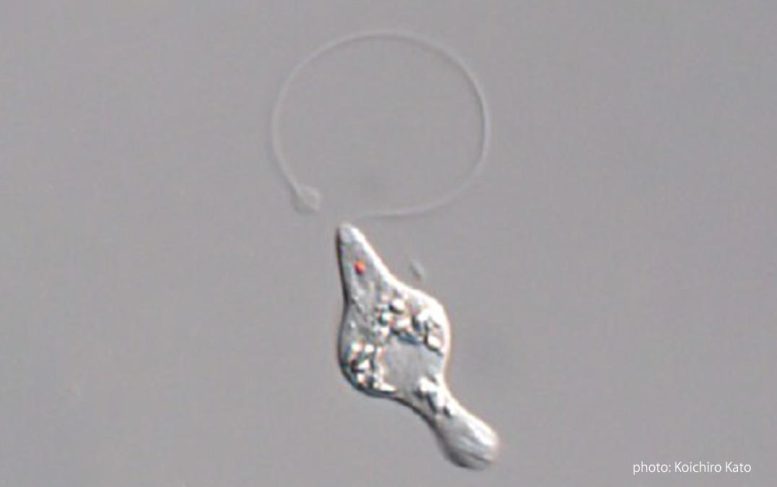
A newly identified parasitic euglenid, Euglenaformis parasitica, sheds light on its evolutionary shift from photosynthesis to animal parasitism.
Euglenids are recognized for their diverse nutritional methods, encompassing photosynthesis, bacterial predation, and in some cases, animal parasitism. Nonetheless, the records of parasitic euglenids are spare and out-of-date, lacking reliable information on their ecology or taxonomy.
In a recent study, researchers unearthed flagellates within four animal species—including ostracods and rhabdocoels—gathered from a rice field in proximity to the University of Tsukuba. These animals, which had flagellates in their bodies, died within days, indicating that the flagellate was a parasite. This flagellate displayed active metaboly without flagella inside the host body.
However, upon leaving the host, it extended its flagella and began to swim. Using electron microscopy and other techniques, the scientists examined the morphology of this flagellate and determined that it exhibited euglenid characteristics. In addition, DNA comparisons between flagellates isolated from all four animal species confirmed that they belonged to the same species.
Phylogenetic analysis also revealed that this flagellate is a part of the photosynthetic euglenid group, suggesting that the flagellate lost its photosynthetic ability in the course of evolution to become an animal parasite. Comparing this to other previously reported parasitic euglenid flagellates, the scientists deduced that our discovery is a new species. They have named it Euglenaformis parasitica (Japanese name: Tsukuba-yadori-midorimushi).
Euglenaformis parasitica exhibits a remarkably high infection rate in ostracods, a common species in rice fields. Elucidating the ecology of such parasitic organisms is anticipated to significantly enhance our understanding of rice-field ecosystems.
Reference: “Taxonomy of a New Parasitic Euglenid, Euglenaformis parasitica sp. nov. (Euglenales, Euglenaceae) in Ostracods and Rhabdocoels” by Koichiro Kato, Kensuke Yahata, and Takeshi Nakayama, 9 May 2023, Protist.
DOI: 10.1016/j.protis.2023.125967
Never miss a breakthrough: Join the SciTechDaily newsletter.